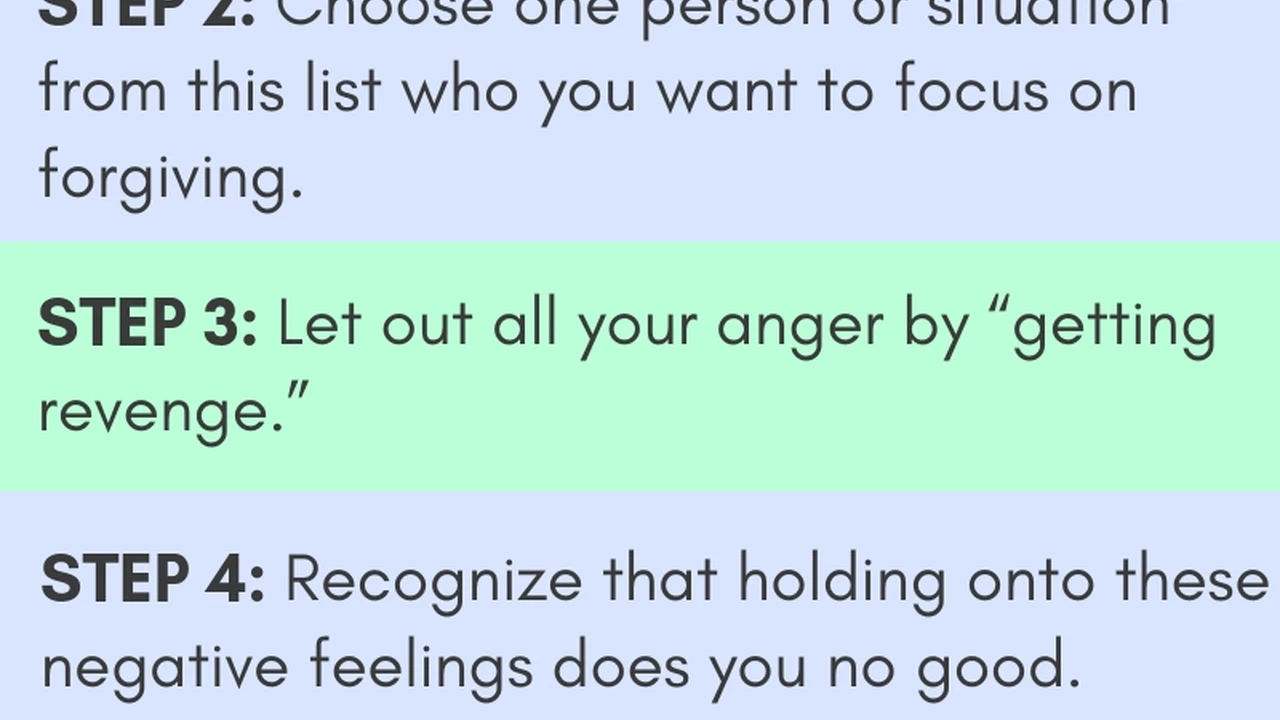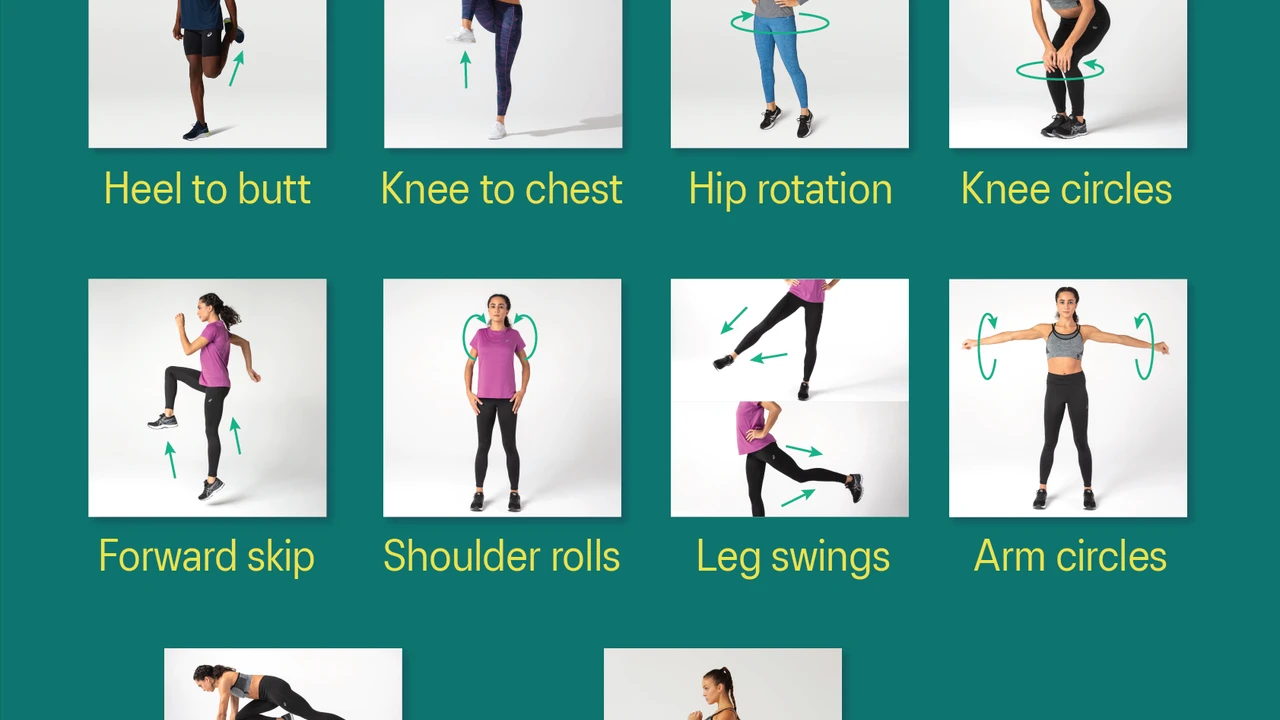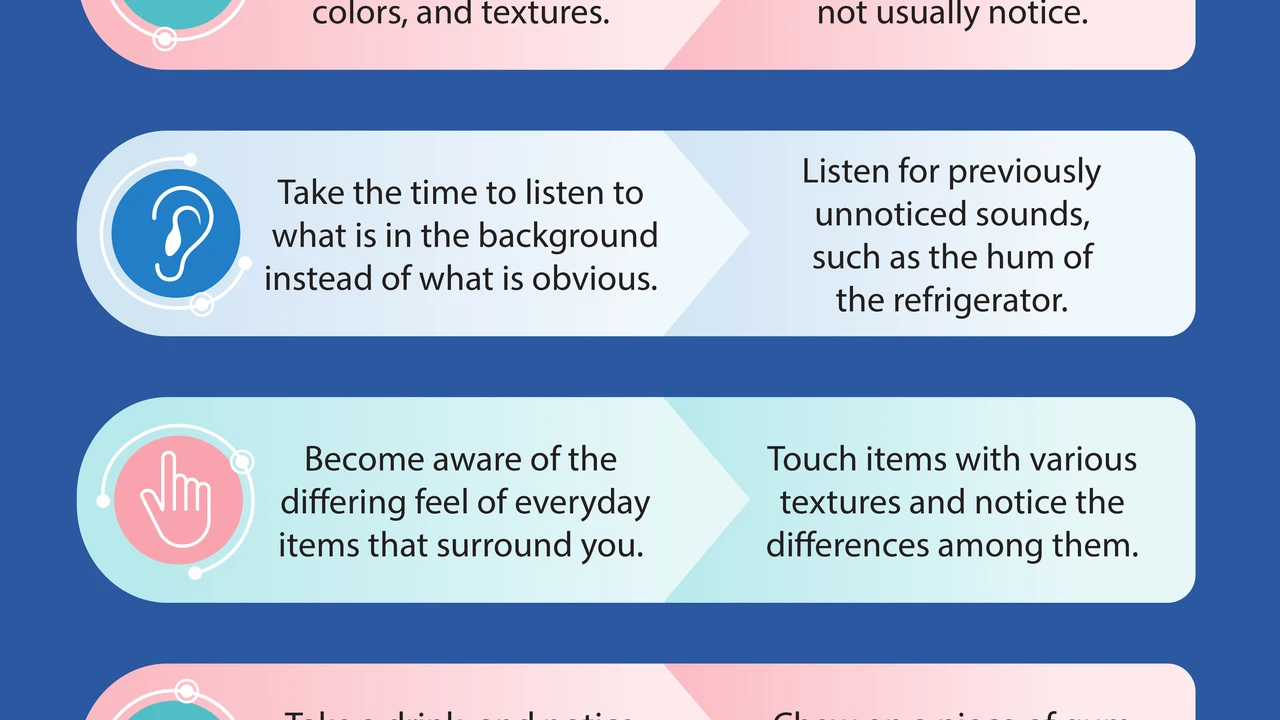How to Forgive Yourself and Others: Release Resentment and Anger
The Benefits of Spending Time in Nature Reconnect With the Earth

Are you feeling stressed, overwhelmed, or just plain blah? Well, guess what? The answer might be simpler than you think: head outside! Seriously, spending time in nature isn't just about pretty views and Instagram-worthy photos. It's a powerful tool for boosting your mental, emotional, and physical well-being. Let's dive into why reconnecting with the earth is so important and how you can easily incorporate it into your daily life.
Mental Health Benefits of Nature Exposure for Stress Reduction
Life can be a whirlwind. Deadlines, responsibilities, and constant notifications can leave you feeling frazzled. But nature has a knack for calming the chaos. Studies have shown that even short periods spent in natural environments can significantly reduce stress hormones like cortisol. Think of it as a reset button for your brain.
How does it work? Well, nature provides a sensory escape from the demands of modern life. The sights, sounds, and smells of a forest, park, or even your backyard garden can be incredibly soothing. It allows your mind to wander, promoting relaxation and reducing mental fatigue. Plus, being in nature often encourages physical activity, which is another fantastic stress reliever.
Ever heard of "forest bathing"? It's a Japanese practice called "Shinrin-Yoku," which literally translates to "taking in the forest atmosphere." It involves simply immersing yourself in nature, paying attention to your senses, and letting the environment work its magic. No actual bathing required!
Emotional Wellness Improved By Spending Time Outdoors
Beyond stress reduction, nature can also have a profound impact on your emotional well-being. Studies have linked time spent in nature to increased feelings of happiness, joy, and contentment. It can also help reduce symptoms of anxiety and depression.
Why is this? Well, nature provides a sense of awe and wonder. Think about gazing at a starry sky, hiking through a majestic forest, or watching a beautiful sunset. These experiences can put things into perspective and remind you of the beauty and vastness of the world around you. This can help to shift your focus away from worries and anxieties and towards feelings of gratitude and appreciation.
Furthermore, nature can foster a sense of connection. Whether you're walking your dog in the park, gardening with friends, or simply observing the wildlife in your backyard, spending time in nature can help you feel more connected to the world around you and to other living beings. This sense of connection can combat feelings of loneliness and isolation.
Physical Health Gains From Outdoor Activities And Green Spaces
It's not just your mind and emotions that benefit from nature; your body does too! Spending time outdoors often encourages physical activity, which has a plethora of health benefits. Walking, hiking, biking, swimming, gardening – the possibilities are endless.
Regular physical activity can help improve your cardiovascular health, strengthen your bones and muscles, and boost your immune system. It can also help you maintain a healthy weight and reduce your risk of chronic diseases like diabetes and heart disease.
But even if you're not actively exercising, simply being in nature can have physical health benefits. Studies have shown that spending time in green spaces can lower blood pressure, reduce muscle tension, and improve sleep quality. The fresh air and sunshine can also provide you with vitamin D, which is essential for bone health and immune function.
Best Outdoor Activities For Mental And Physical Well-Being
So, how can you incorporate more nature into your life? Here are a few ideas:
- Hiking: Explore local trails and immerse yourself in the beauty of the natural world.
- Gardening: Get your hands dirty and grow your own fruits, vegetables, or flowers.
- Walking: Take a stroll in a park, forest, or along the beach.
- Biking: Explore your neighborhood or local trails on two wheels.
- Swimming: Take a dip in a lake, ocean, or swimming pool.
- Picnicking: Pack a lunch and enjoy it in a scenic outdoor spot.
- Camping: Spend a night or two under the stars.
- Birdwatching: Observe the birds in your backyard or local park.
- Yoga or Meditation: Practice mindfulness in a natural setting.
- Simply Relaxing: Find a quiet spot in nature and simply relax, read a book, or listen to music.
Products to Enhance Your Outdoor Experience for Better Wellness
To make your time in nature even more enjoyable and beneficial, consider investing in a few key products:
Best Hiking Shoes for Comfort and Support
Product: Salomon X Ultra 4 GTX
Use Case: Hiking on moderate to challenging trails. Offers excellent grip, waterproof protection, and ankle support.
Comparison: Compared to Merrell Moab 2, the Salomon X Ultra 4 GTX offers superior ankle support and a more aggressive tread. Compared to Hoka Speedgoat 5, it's more stable on uneven terrain but less cushioned.
Price: Approximately $150 - $180
Essential Backpacks for Hiking and Outdoor Adventures
Product: Osprey Talon 22 (Men's) / Tempest 20 (Women's)
Use Case: Day hiking, trail running, and other outdoor activities where you need to carry essentials like water, snacks, and a first-aid kit.
Comparison: Compared to the Gregory Zulu/Jade series, the Osprey Talon/Tempest is lighter and more streamlined. Compared to the Deuter Speed Lite series, it offers better ventilation.
Price: Approximately $130 - $150
Sunscreen Recommendations for Skin Protection Outdoors
Product: EltaMD UV Clear Broad-Spectrum SPF 46
Use Case: Daily sun protection for all skin types, including sensitive and acne-prone skin. It's lightweight, oil-free, and non-comedogenic.
Comparison: Compared to Neutrogena Ultra Sheer Dry-Touch, EltaMD UV Clear is less likely to cause breakouts and is more moisturizing. Compared to Supergoop! Unseen Sunscreen, it's more affordable and offers similar broad-spectrum protection.
Price: Approximately $38 - $42
Water Bottles and Hydration Packs for Staying Hydrated
Product: Hydro Flask 32 oz Wide Mouth
Use Case: Staying hydrated throughout the day, whether you're hiking, working, or running errands. It keeps drinks cold for up to 24 hours and hot for up to 12 hours.
Comparison: Compared to Yeti Rambler, Hydro Flask is lighter and more affordable. Compared to Nalgene Tritan, it keeps drinks colder for longer.
Price: Approximately $40 - $45
Bug Repellents for a Comfortable Outdoor Experience
Product: Sawyer Products Premium Insect Repellent
Use Case: Protecting yourself from mosquitoes, ticks, and other biting insects. It's effective for up to 12 hours and is DEET-based.
Comparison: Compared to DEET-free options like lemon eucalyptus oil, Sawyer Products Premium Insect Repellent offers longer-lasting protection. Compared to Off! Deep Woods, it has a lower concentration of DEET.
Price: Approximately $10 - $15
Making Time For Nature In Your Busy Schedule
Okay, so you're convinced that spending time in nature is beneficial, but you're thinking, "I barely have time to shower, let alone hike in the woods!" Don't worry, you don't have to drastically overhaul your life. Even small doses of nature can make a difference.
Here are a few tips for incorporating nature into your busy schedule:
- Take a walk during your lunch break: Instead of eating at your desk, head to a nearby park or green space for a quick walk.
- Bring nature indoors: Add plants to your home or office.
- Listen to nature sounds: Play nature sounds while you work or relax.
- Look out the window: Take a few minutes each day to simply observe the natural world around you.
- Plan a weekend getaway: Escape the city and spend a weekend in a natural setting.
The key is to be intentional about making time for nature. Schedule it into your calendar, just like you would any other important appointment. And remember, even a few minutes of nature exposure can be beneficial.
Accessibility to Nature for Every Individual
It's important to acknowledge that access to nature isn't equal for everyone. Factors like socioeconomic status, location, and physical abilities can all impact someone's ability to spend time in natural environments.
If you live in an urban area with limited access to green spaces, consider exploring community gardens, local parks, or even rooftop gardens. You can also advocate for more green spaces in your community.
If you have physical limitations, look for accessible trails or parks that cater to your needs. Many organizations also offer adaptive outdoor recreation programs.
No matter your circumstances, there are ways to connect with nature. It may require a little creativity and effort, but the benefits are well worth it.
The Future of Wellness Embracing Nature for a Healthier Life
As we become increasingly aware of the importance of mental and emotional well-being, spending time in nature is likely to become an even more integral part of our lives. It's a simple, yet powerful tool for promoting health and happiness. So, step outside, breathe in the fresh air, and reconnect with the earth. Your mind, body, and soul will thank you for it.
:max_bytes(150000):strip_icc()/277019-baked-pork-chops-with-cream-of-mushroom-soup-DDMFS-beauty-4x3-BG-7505-5762b731cf30447d9cbbbbbf387beafa.jpg)






